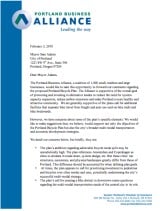
The Portland Business Alliance released their letter on the Portland Bicycle Plan for 2030 today.
The six-page letter signed by CEO Sandra McDonough on behalf of 1,400 businesses expresses support “of the overall goal” of the plan but also calls out some concerns and offers several suggestions.
The PBA (download PDF here) calls the plan’s goal of 25% bike usage “unrealistically high” and questions the wisdom of emulating cities like Amsterdam and Copenhagen.
There is also trepidation from the PBA that the plan is anti-car, or as they put it:
“At times, the plan appears to call for prioritizing investment in pedestrian and bicycles over other modes and uses, potentially undermining the city’s successful multi-modal strategy. The plan’s call for creating a bike district in downtown raises questions regarding the multi-modal transportation needs of the central city…”
Here two other suggestions to improve the plan, compliments of the PBA:
- The plan should contain performance measures for investments in bike facilities to determine whether they achieve the objectives set out to secure funding approval.
- Oregon’s long-standing user-pay philosophy should extend to bicycling if it is going to be a significant user of the right-of-way and impetus for significant capital expenditures.
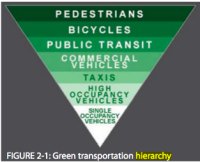
Not surprisingly, the PBA offered detailed comments on one aspect of the plan in particular, the Green Transportation Hierarchy. As I reported back in October, that heirarchy would “radically shift how the City approaches street designs, putting human-powered modes at the top and placing single-occupancy vehicles at the bottom.”
Here’s what the PBA thinks about it:
“We support balancing the role of each mode in meeting the city’s mobility and access needs. Therefore, we are concerned about the plan’s Green Transportation Hierarchy, which we read to call for prioritizing investment in pedestrian and bicycle infrastructure over transit and commercial auto needs. While the Alliance agrees that investing in alternative modes to auto is critical to reducing congestion and maintaining capacity, the plan cannot undermine the need to maintain the infrastructure that supports freight and commercial vehicles…
We urge that investments made in pedestrian and bicycling modes will be considered in coordination with other modes with the intention of improving the overall operation of the transportation system, and we encourage added language making that clear.”
The detailed letter also touches on “bicyclists who do not know – or choose not to obey – traffic rules:”
“The Alliance suggests that bicyclists be required to demonstrate knowledge of the traffic laws just as other direct users of the right of way must do.”
And they feel it’s time that people who ride bikes start to pay their way:
“Also, if this city is serious about significantly increasing bicycle mode share, it is unavoidable that bicycles be asked to share some of the burden of paying for the infrastructure they use. While their per-unit burden on the system is low relative to other modes, it is not zero – particularly when significantly expanded facilities are being constructed, or parking stalls are removed and their associated city revenue are foregone… We ask that you extend the user-pay philosophy to bicycling.”
It’s important to remember two things when reading this letter: First, the PBA has, in the past, been something of an arch-rival to bike planners and bike advocates in this city; and second, the PBA carries a considerable amount of political weight in Portland.
This letter offers a fascinating (if you’re a wonk) perspective on how an historically non bike-friendly business association reacts to a major bike plan. I think the depth of thought and consideration taken on it shows a lot of promise for future discussions with the PBA on how to make biking work better for everyone in Portland.
— Download the letter (PDF)



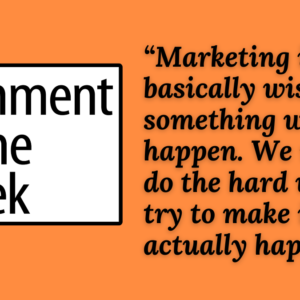

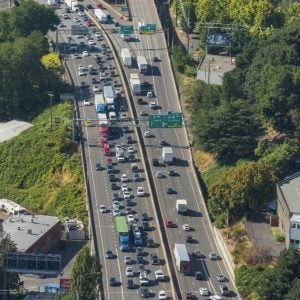
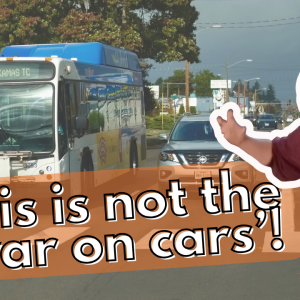
Thanks for reading.
BikePortland has served this community with independent community journalism since 2005. We rely on subscriptions from readers like you to survive. Your financial support is vital in keeping this valuable resource alive and well.
Please subscribe today to strengthen and expand our work.
And let’s tax pedestrians. And force pedestrians to take tests to demonstrate their knowledge of the law.
Seriously, with all the health care and parking costs saved by business owners when their employees bike, they’re simply demonstrating shortsightedness.
And it’s not that cyclists don’t know the laws. It’s that the laws are made for 5,000 pound cars that go 60 miles an hour, not for agile, human-powered, small vehicles like bikes. So some of them aren’t followed (just like drivers don’t follow their laws).
Sigh. Whatever. And the pyramid is a feel-good pyramid, not something the City will actually follow with funds or contentious decisions anyway.
God speed the day when I never have to hear “cyclists don’t pay their share” ever again. Yet another good reason to build the plan out – the more people cycle for daily trips, the less that will get said 🙂
@ Dave –
Agreed. Call me an idiot, but I actually decided to step into the ring at the Merc at some twit saying the same thing. When I explained to him (rather impolitely, admittedly…my patience with ignorance is grinding to a halt) that every taxpayer pays for transportation, the fact was staunchly ignored.
I guess the point I’m trying to make is that even with the truth right in their faces, these idiots are going to keep on believing whatever it is they are using as an excuse to oppose cycling in the streets.
no surprises here
The PBA’s letter is a huge step in the right direction.
As Jonathan pointed out, the Business Alliance has, for as long as I can remember, been very car- and transit-focused, and had little positive to say about investments in bicycling. While it falls short of a full-fledged endorsement of the Bicycle Plan, this letter represents a sea change in their public position, and should be celebrated.
Thank you Sandra McDonough and the PBA membership! Now let’s take the next step — and BUILD IT!
Okay, wait. Let me make sure I understand this. The Bike Plan has been in development for how many months? And the vote is today and the PBA finally gets around to sharing their two cents? Wouldn’t it have been far more helpful during the plan’s development process?
Agree that this is a huge step forward. The bit about knowledge of traffic laws is fluff. Paying “our own way” is something that has to be considered. What this does is force the economic issue and allows for cycling to prove it’s case. As a society I do not feel we accurately measure the true cost of automobile transportation. Let them consider keeping score. My guess is that bike commuters would actually end up receiving a tax credit trip, easy enough to pay a fee from all the credits.
User pay philosophy? You mean like the way rules stuck in our constitution make charging tolls on roads nearly impossible?
Why do people who are opposed to real investment in cycling and human-powered modes develop amnesia about who pays taxes and how?
Need an Open Source initiative on the government revenue stream, both in and out.
Taxpayers need to know where money comes from to pay for services.
If a revenue stream is legally obligated to a particular service then we need verification that the money went there.
Conversely, a public service, like the road system, should have a source or sources of revenue that are clearly defined.
The fact that this argument even exists speaks to lack of government clarity. This is quite ironic as money, ie taxes, is the thing that most citizens get most riled up by.
This revenue clarity issue exists on the federal, state and city level. Every layer of obfuscation makes resolving the argument that much more impossible.
Until there is a front page Oregonian story, and quite frankly in every US paper, accurately delineating where road funding comes from cycling and pedestrian interests will never be respected because there will be the erroneous belief that because we don’t pay gas taxes we don’t put money in to the public road system.
I, for one, would happily pay a “bike tax” of some sort if it means that PBP~2030 would actually be realized. But I would expect much more than empty promises from our elected leaders. Just my $.02…
To the folks at the PBA:
I hope you do read this. Please understand that the more people bicycle the more room for the commercial vehicles.
The more single person cars and trucks not driven daily, the faster and far less expensive their infrastructure.
Added bonus: because there would be less vehicle traffic, there will be less maintenance needed and the better the roads will hold up.
I think Jonathan’s entire article is well thought out and level headed, especially the last sentence. As for the Rules of the Road, I agree with the PBA, ALL users of the road must follow the same rules, or injuries and/or death will continue. The Rules are there for everyone’s safety, even yours.
A small sales tax on bike sales would be a terrific way to actually help…erm… build it. These local funds would be dramatically leveraged by contributions from the federal government. I just don’t see whats not to like.
It always seems to be an us versus them mentality with the comments on this blog. Find the common ground here, work together and move forward for crying out loud!
rwl1776 (#12) – but how do we *do* that? Many motorists don’t obey the laws NOW. Neither do many cyclists or pedestrians. We, as a society have 3 choices – either we take steps to enforce the law, and enforce it equally, or we accept the status quo, or we redesign the system so that compliance with the law is no longer necessary. (i.e. reduce speeds to 20mph or less for all motorized traffic, by whatever means that doesn’t require someone watching for compliance and punishing offenders)
spare_wheel (#13) Dramatically leveraged by contributions by the federal government? From where? Unless you can get us out of Afghanistan and Iraq, there’s no money to spend. 44.4% of the federal budget is Department of Defense. The next largest component is servicing the National Debt, which just grew another large step with the recent bailouts. The feds can barely fund the current transportation act, where will they get more money?
A Portland only Bike Sales Tax? This seems like a really bad idea. Do you really want to discourage bike retailers from opening shops in Portland?
Yes, I agree. The long-term effects would be huge, especially if other industries joined in a boycott.
There has to be a better way to raise revenue.
I am all for “user pays”, but why does “user pays” mean Bikes pay. I would love to see transportation fully funded out of user fees and off income and property taxes. The 25% figure would look more realistic if everyone knew how much their car driving actually cost.
What Tim (#20) said. But instead of making cars pay their fair share, let’s consider the money-saving alternative. to wean roads from their dependence on the General Fund, we can decommission some city streets. my bike loves those “roadway not improved” signs.
The PBA should be aware that Portland is known around the nation–and the world–for its bike friendliness. Translation: A lot of bike-oriented people currently stuck (by their jobs) in places like Phoenix would very much like to retire there. (Not only for bike-friendliness pure and simple, but also for what bike-friendliness says about a community: its larger values.) Retirement to Portland means spending money and not having a (paying) job. It means money flowing into the pockets of Portland business owners. I don’t know how I can be more clear about this: an anti-bike attitude helps damage Portland’s desirability as a travel and retirement destination.
…What is the value of relatively “free cycling”. Now don’t jump to conclusions.
I recently retagged my old parked in the garage, hasn’t had a bit of gas added since August, hasn”t been driven since November, toyota.
The TAX for retagging my cage, was one-hundred dollars. I’m not complaining, just saying…If I’m willing to pay, a partial coverage payment(tax) to operate my CAGE on city streets, shouldn’t I be willing to pay “something?” for the liberty of riding my transportation. Please don’t misunderstand I don’t want to, or even think we should have to….but!
Do I want another tax, no. Do I think auto drivers cannot understand that cyclists already pay..yes, I do. But it is just a preception.
Maybe WE need to see, that a fee paid for using roads would reinforce our legitimcy as a transportation mode and in the preception of AUTOMOBILE USERS. In doing so we could also expect a more respectful place at the budget table. Commanding a more equitable SHARE of the budget.
Maybe not…
I think it’s great that the Business Alliance has expressed even conditional support for the plan. It shows we’re making progress. We should build on that.
The law enforcement angle is a red herring. Lots of automobile drivers break the law all the time, but I never see it used as a excuse to deny road and highway funding. I also think the liability exposure from bike riding is much less than that of a car. It’s just the physics of speed and mass.
It might be time for us to talk seriously about some form of revenue raising among the bike community though, be it taxes or licenses or what have you. It will have to be something relatively low; it will most likely never pay for a substantial amount of the infrastructure we are asking to be built, but it would be a significant way of showing we are willing to buy into the system and engender good political will.
The bike community has to be smart about how we grow ourselves.
David, a fee for biking is a bad idea. Less people will bike. Easier to take the car for someone who may think of trying to bike. It’s a disincentive. Cops that don’t like bikes will waste time checking their papers, instead of going after real criminals.
Furthermore, it’s preposterous in the face of the huge cost of driving that drivers don’t pay. You should not be defensive about your free biking. You need to be aggressive in pointing out the cost to society brought upon us by all this cheap driving. Drivers are on the DOLE. They suck away money that could go to health care and education. The complain about the cost of gas when it costs about the same as bottled drinking water. And this highly refined flammable chemical shipped halfway around the world…. and it costs about the same as water?
Don’t even entertain the idea of paying to ride! Drivers are getting away with government subsidies every day, and costing us untold sums that will go to all of us and our children. Ride your bike on our public roads (yes you own them too) and do not accept that you should pay to use a mode of transportation that does not have the devastating financial effects and health repercussions as the motoring masses.
“… Oregon’s long-standing user-pay philosophy should extend to bicycling if it is going to be a significant user of the right-of-way and impetus for significant capital expenditures. …”
“… Also, if this city is serious about significantly increasing bicycle mode share, it is unavoidable that bicycles be asked to share some of the burden of paying for the infrastructure they use.
… We ask that you extend the user-pay philosophy to bicycling.” PBA letter regarding Portland’s bike plan
The PBA in their letter, offers no suggestions for practical, equitable means of extending to bicycling, what it describes as Oregon’s long-standing user-pay philosophy.
My recollection is that people commenting to bikeportland stories have, going back over at least a couple years, had a lot of discussion about ideas associated about the possibility of bicycling making payment for infrastructure; searching for practical ways it might be done, and whether a request that bicycling pay for infrastructure it uses is even a valid one.
Those discussions did not come up with a clearly defensible way of requiring that bicycling make a cash type payment somehow comparable to the gas and license registration for motor vehicles.
One of a number of reasons for this, is that it seems that another Oregon philosophy of some long standing, is that transportation infrastructure that encourages people to ride bikes instead of drive, is an economical and essential tool for moderating motor vehicle congestion.
Does the PBA believe, or not believe, that overall provision of bike infrastructure is making more space available on streets and roads for motor vehicle use? It does not seem to touch on this point in its letter to Mayor Adams.
Sorry…terrible proofreading. Try this…(and…I added a little):
One of a number of reasons for this, is that it seems another Oregon philosophy of some long standing exists: the belief that transportation infrastructure that encourages people to ride bikes instead of drive, is an economical and essential tool for moderating motor vehicle congestion. Isn’t the following obviously correct: A person riding a bike on a bike lane uses less space on the road than a person alone in a car on a main travel lane does.
I hear them saying they don’t agree with the green transportation triangle’s proposed hierarchy placing PEOPLE in front of PRODUCTS.
while i agree, comment 16, that to some extent you need to build systems that are to a large extent idiot-proof, there is also something to be said for education. and i mean education you cannot avoid. people learn rather quickly how to operate electronic gear or which beer to buy. if traffic safety cues were written into the screenplays of every popular television program, people would learn. kiefer sutherland yields to a pedestrian or signals a lane change or takes the lane on his fixie, whatever. also of course news outlets have to be put through some re-education.
Are you kidding, Johnathan? That letter is a rehearsal and recitation of new obstructionist claims. It’s as dishonest as the day is long, among other things. Bikes would never interfere with freight and transit, and they know it. They are just trying to find notes they can play to scare politicians into killing us.
We bike activists ought to be preparing ourselves on every issue they raise. They are cornered and they know it.